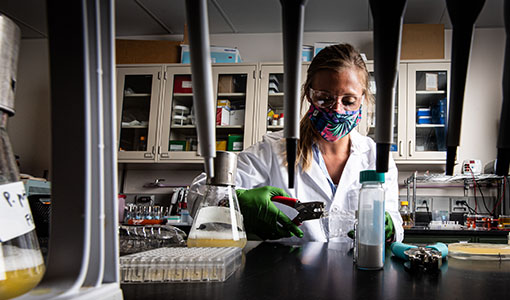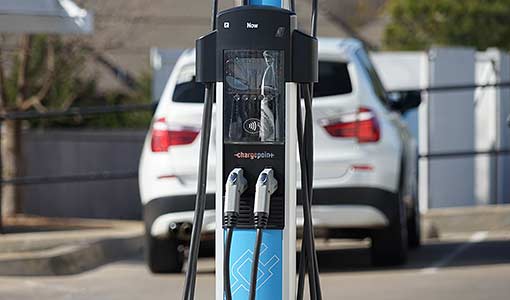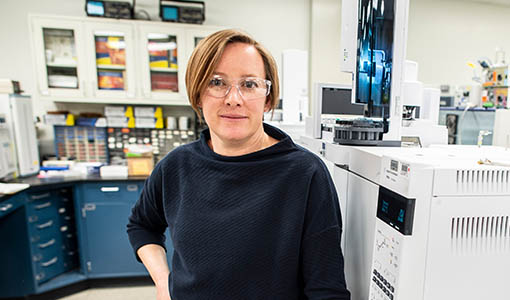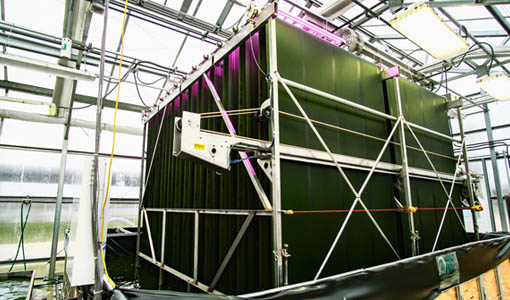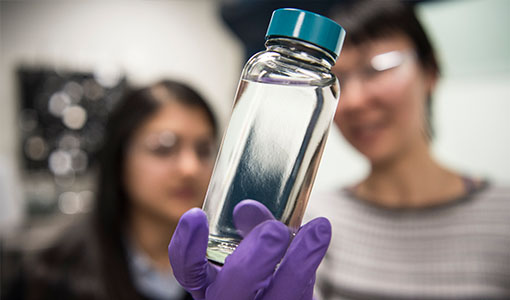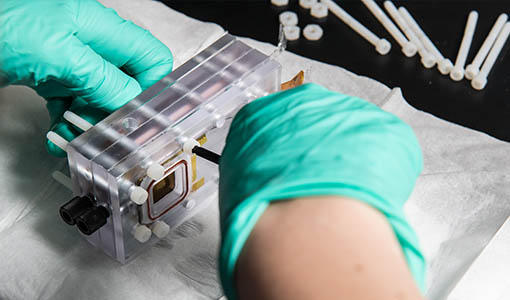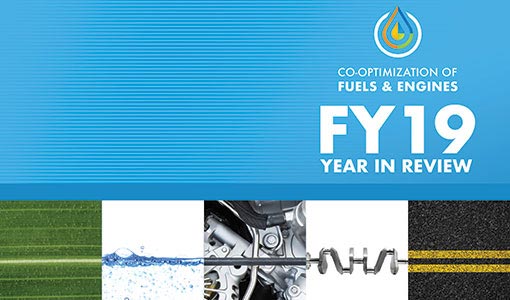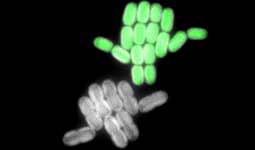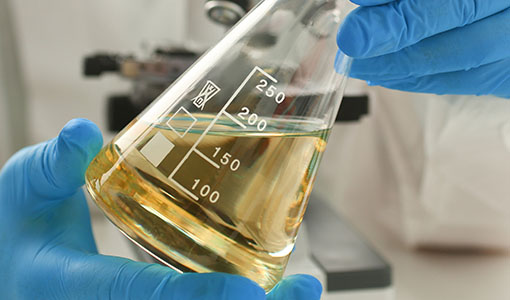Explore our collection of new stories for this topic.
Search or filter for a specific story using the options below.
September 2020
NREL Researchers Share $40 Million with Partners To Scale Next-Gen Biotechnologies
A combined award of nearly $40 million from the U.S. Department of Energy's Bioenergy Technologies Office will support NREL researchers, along with partners from universities and industries, to develop and scale up 11 groundbreaking bioenergy projects.
August 2020
Annual Technology Baseline Expands To Include Transportation Data
The first-ever Transportation Annual Technology Baseline consolidates U.S. vehicle and fuel technologies data for current and future markets through 2050.
NREL, ExxonMobil Teams Imagine, Research New Solutions for Tomorrow's Energy Challenges
A year into their unique collaboration, NREL and ExxonMobil are navigating a multi-pronged effort toward a future where clean-burning biofuels replace some petroleum-based fuels.
July 2020
NREL Researchers Set Sights on Commercializing Biotechnologies with Industry Partners
Researchers at NREL are set to launch four bioenergy projects with industry partners that have the potential to accelerate the commercialization of novel bio-based products and technologies.
New Process Turns Carbon into Cleaner, High-Performance Diesel Biofuel Blendstock
A new single-phase catalyst that enables the conversion of renewable and waste carbon into sustainable diesel fuels has been developed through a unique collaboration between NREL and two DOE consortia, Chemical Catalysis for Bioenergy and the Co-Optimization of Fuels & Engines initiative.
June 2020
Lowering Atmospheric CO2 in Large-Scale Renewable Energy Electrochemical Process
What if carbon dioxide (CO2), a prevalent greenhouse gas, could be transformed into higher-value fuels and chemicals using low-cost, renewable electricity? Recent results from NREL may enable the scale-up of an electrochemical process to reduce CO2 that has not been possible until now.
Fuel and Engine Research Brings Cleaner, More Efficient Cars and Trucks Closer to Finish Line
Passenger cars and light-duty trucks typically account for 55% of U.S. transportation energy use. Recently, sharp increases in demand for deliveries have pressed some commercial trucks—which usually account for more than 25% of transportation-related fuel consumption—into overtime.
May 2020
Scientists Pinpoint Pathways for Carbon Dioxide Uptake of Cyanobacteria
Research performed by the Renewable and Sustainable Energy Institute (RASEI)—a joint effort between NREL and the University of Colorado, Boulder—shows how RASEI researchers traced the growth of individual cyanobacteria, providing new insights into the biological pathways that enable efficient photosynthetic growth, and ultimately high-value renewable fuels and chemicals.
NREL's John Farrell Honored for Leadership in Sustainable Fuels and Engines
Since taking the helm of NREL's vehicle technologies research in 2013, John Farrell has been instrumental in directing R&D initiatives for the U.S. DOE Office of Energy Efficiency and Renewable Energy's Vehicle Technologies Office, ranging from high-density energy storage to vehicle automation, as well as co-optimization of fuel and engine technologies to vehicle-to-grid interactions.
NREL Tool Quickly Provides Answers for Chemical Reactions
A new machine-learning tool developed at NREL has significantly speeded up calculating the thermodynamics of chemical reactions. Developed as part of the DOE Co-Optimization of Fuels & Engines initiative, the new tool—called ALFABET—makes it possible for researchers to identify the most promising fuels for lower emissions and greater engine efficiency in seconds rather than days.
Share
Last Updated May 5, 2025

